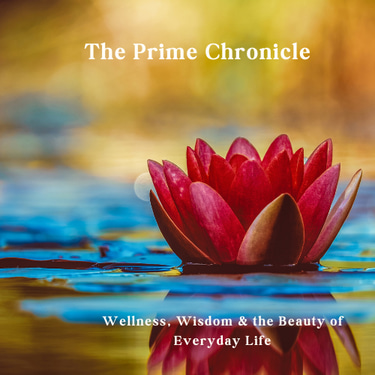Why Do Some People Attract Toxic Partners? Understanding the Psychology Behind It
Wondering why you keep attracting toxic partners? Explore the psychological reasons behind this pattern and learn how to break free, build self-love, and attract healthier relationships.
RELATIONSHIPS
12/22/20244 min read


Have you ever found yourself in a relationship with someone who seemed to bring nothing but negativity into your life? Perhaps you’ve wondered, Why do I keep attracting toxic partners? It’s a question many people ask themselves, and the answer lies deeper than just bad luck or poor choices. There are psychological, emotional, and even societal factors that play a role in why some individuals seem to attract toxic relationships time and time again. In this post, we’ll explore the reasons behind this pattern and how you can break free from it.
The Psychology of Attraction: Why Do We Choose the Wrong Partners?
Attracting toxic partners often stems from deeper emotional needs and unconscious patterns. Here are a few psychological reasons why some people might find themselves repeatedly in unhealthy relationships:
1. Low Self-Esteem and Validation Seeking
One of the most common reasons people attract toxic partners is due to low self-esteem. If someone doesn’t feel worthy of love, they may subconsciously choose partners who mirror those feelings of inadequacy. These toxic individuals often provide fleeting validation that can seem fulfilling at the moment, even if it’s ultimately damaging in the long run.
People who struggle with self-worth may gravitate toward relationships where they feel they need to earn love, attention, or approval. Unfortunately, toxic partners are often experts at manipulating emotions and making their victim feel inadequate, thus perpetuating a vicious cycle of dependence and emotional abuse.
2. Unresolved Childhood Trauma or Attachment Issues
Childhood experiences significantly shape how we approach relationships in adulthood. If someone grew up in a home where emotional neglect, abuse, or dysfunction was prevalent, they might attract toxic partners as a way to repeat a familiar, albeit painful, dynamic. Attachment theory explains that early relationships with caregivers shape our attachment styles—secure, anxious, avoidant, or disorganized—which influence how we behave in adult relationships.
For example, someone with an anxious attachment style might be drawn to partners who are emotionally distant or unpredictable, seeking to "fix" or "save" them. This can lead to a toxic dynamic where both partners are stuck in unhealthy, codependent patterns.
3. Familiarity Breeds Comfort
When you grow up in an environment where toxic behaviors were the norm, it becomes the baseline for what feels "familiar" or even comfortable. If you were exposed to manipulation, control, or emotional instability in your past relationships—whether family or romantic—you may unknowingly seek out these patterns in future relationships. Familiarity with chaos can trick the mind into thinking it’s a safe or normal way to experience love, even when it’s clearly damaging.
This unconscious drive to replicate familiar patterns is known as "trauma bonding". When individuals feel a sense of attachment or connection with someone who is emotionally or psychologically abusive, it can be difficult to break free from the cycle.
4. The "Rescuer" Complex: Fixing Toxic People
Many individuals with a "rescuer" complex are prone to attracting toxic partners. People with this complex feel an innate need to fix or save others, often choosing partners who are emotionally unavailable, broken, or difficult to manage. The idea of "saving" someone gives them a sense of purpose and fulfillment, but in doing so, they often overlook red flags and remain in unhealthy relationships for far too long.
This pattern can be linked to a strong desire to be needed or to experience the satisfaction of solving another person’s problems, even at the expense of their own well-being.
5. Lack of Boundaries
Another reason why some individuals attract toxic partners is a lack of healthy boundaries. When we don’t know how to establish and enforce boundaries, we become susceptible to people who take advantage of our kindness, generosity, and willingness to please. Toxic partners can sense this vulnerability and often exploit it for their own gain, manipulating emotions, time, and resources.
People with weak boundaries might also feel guilty about asserting their needs or saying no, which leaves them vulnerable to being controlled or mistreated. Establishing healthy boundaries is a crucial step in breaking free from toxic relationship patterns.
How to Break the Cycle and Attract Healthy Partners
If you’ve found yourself in a cycle of toxic relationships, you might be wondering, How can I change this pattern? Here are a few steps to help you break free and start attracting healthier, more fulfilling relationships:
1. Work on Self-Love and Healing
Start by building your self-esteem and self-worth. Practice self-love and self-care, and take time to heal from past traumas or toxic relationships. The stronger your relationship with yourself, the less likely you’ll attract toxic partners. When you truly love yourself, you become less dependent on external validation and more capable of setting healthy boundaries.
2. Learn to Recognize Red Flags
One of the most important steps in avoiding toxic partners is learning to spot red flags early. Pay attention to patterns of manipulation, control, or emotional abuse, and don’t ignore warning signs. If something feels off, trust your instincts and be prepared to walk away. Healthy relationships should make you feel safe, valued, and respected—not anxious, controlled, or drained.
3. Seek Therapy or Counseling
If your past is influencing your present relationships, it might be helpful to seek the support of a therapist or counselor. Talk therapy can help you process unresolved childhood trauma, build healthier attachment styles, and learn to break old patterns. Therapy provides tools to recognize and change self-destructive behaviors, and it’s a great way to heal from past wounds before entering new relationships.
4. Set Clear Boundaries
Establishing healthy boundaries is key to attracting healthy, supportive partners. Boundaries help protect your emotional, physical, and mental well-being and ensure that your needs are respected. When you set clear boundaries and learn how to enforce them, you’re less likely to attract toxic people who will try to manipulate or control you.
Attracting toxic partners isn’t about fate or bad luck—it’s often rooted in deep emotional patterns and unconscious beliefs about ourselves and relationships. By understanding why you attract these types of individuals, you can begin to make healthier choices and break the cycle of toxic relationships. Focus on self-love, self-awareness, and personal growth, and you’ll soon find yourself attracting partners who uplift and support you rather than tear you down. Remember, you deserve a relationship that brings out the best in you!
The Prime Chronicle © 2024
Reframe your inbox
Subscribe to our newsletter and never miss a story.
We care about your data in our privacy policy.
